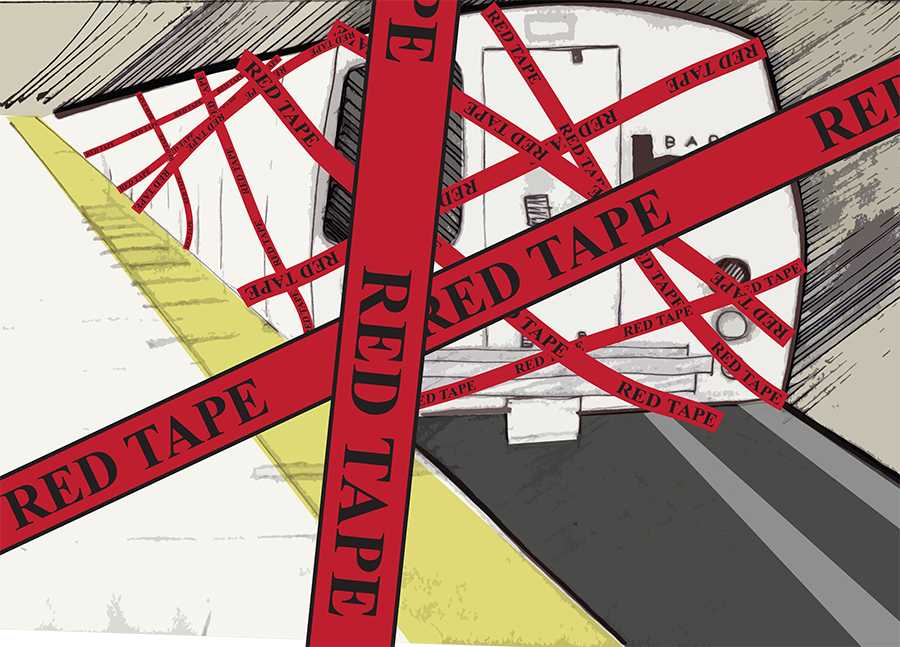BART fight affects people on other side of tracks
October 23, 2013
BART unions were on strike.
Surprised? Probably not. But frustrated? Definitely.
Unions going on strike hurt Bay Area commuters by delaying contract negotiations, leaving their problems unresolved, and creating new problems for Bay Area citizens. These involve planning ahead or being subjected to the turmoils of traffic and a huge loss of money for our economy.
Two major BART unions, Service Employees International Union Local 1021 and Amalgamated Transit Union Local 1555, felt that they were fighting for rights they deserve and put pressure on BART to ensure fair negotiations.
According to an article from the Huffington Post from Oct. 17, one of the initial issues that came up when the unions and BART were in contract talks in April stemmed from unions wanting a “share of $125 million operating surplus produced through increased ridership.”
That same article continues to say that the two unions represent more than 2,300 workers and earn a base salary averaging about $71,000 and $11,000 in overtime per year. BART workers also pay $92 per month for health care and do not contribute toward their pensions.
BART eventually made a final offer to workers which included “an annual 3 percent raise over four years and requires workers to contribute 4 percent toward their pension and 9.5 percent toward medical benefits,” according to the Huffington Post, but clearly both sides didn’t agree upon that.
According to the San Francisco Chronicle from Aug. 14, BART workers may not make the most money in comparison to other transit agencies, but without any pension contributions and low-cost health care, they are considered to be well-off on a nationwide scale. And with California having an unemployment rate of 8.9% from Bureau of Labor Statistics, one might expect BART unions to be more satisfied with what they are being paid and for having a job in this economy.
One major issue that was a key factor in their second strike this year came from a lack of agreement on work rules.
According to the Associated Press on Oct. 18, work rules include how schedules are made, the form of paychecks and how they are distributed, and stricter rules to maintain stability within their jobs.
While BART wants the ability to easily change work schedules, unions want to keep their schedules as it is to help with workers’ obligations. The fact that they couldn’t come to an agreement over this detail prolonged negotiations and left commuters on edge.
According to an article from the San Jose Mercury News from Oct. 18, about 200,000 people who ride BART round trip were stranded each day that it was shutdown.
So many people rely on BART to get to school or work and with these people unable to use BART as a mode of transportation, they had to use other resources to get where they need to go. Unfortunately, this caused an influx in local traffic, which left commuters to plan their day around the strike.
From the same San Jose Mercury News article, The Bay Area Council business group had estimated that with the strike, $70 million were lost per day for our local economy.
The fact of the matter is that BART is only able to put on this strike and make the demands it’s making because of how much harm a BART shutdown could cause innocent people. Even commuters who never take BART are having to deal with much more traffic in their daily commute.
While we value the ability for workers’ unions to strike against their employers to insure benefits, BART unions abused the public’s dependency on them and used our time and money as bargaining chips against their managers.
It’s wasn’t fair to those who weren’t on strike to deal with the repercussions of BART and their unions’ actions. Daily commuters did nothing to deserve extra time commuting or worrying about how they’ll get to work or school.
The BART strike may be over, but it certainly left a bad taste with many locals.
The conflict was between the unions and BART itself, and it should have stayed that way.






































































